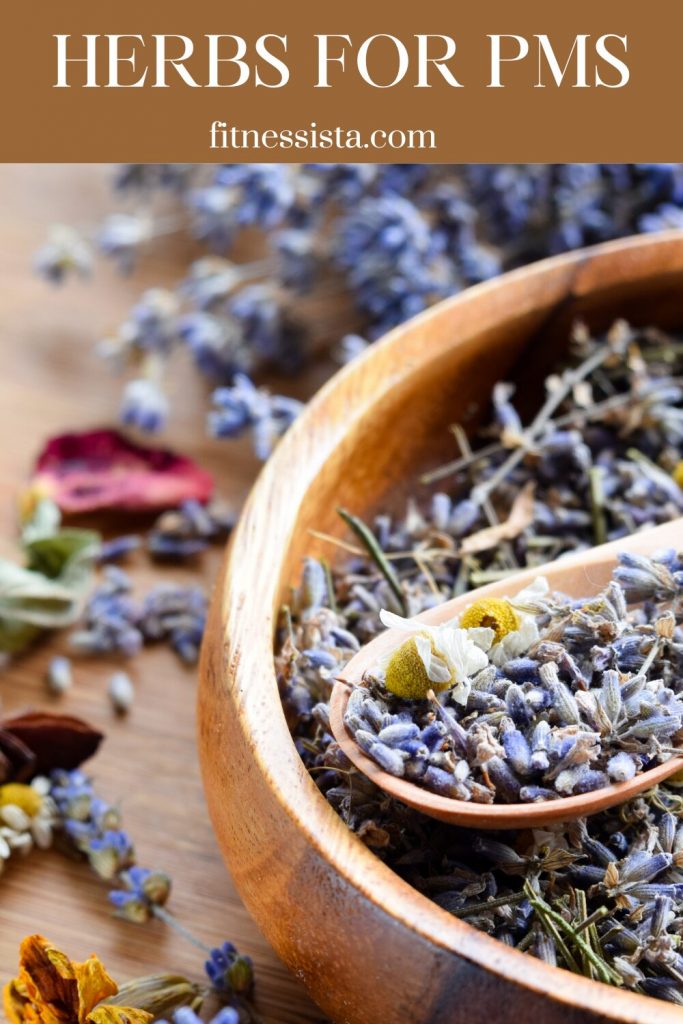the best herbs for PMS
Sharing some of my favorite herbs for PMS.
Hi friends! How are you? Happy Valentine’s Day!! I hope you’re having a lovely morning. I’m looking forward to mass with the kids (it’s also Ash Wednesday) and family fancy dinner tonight. I hope you have a great day, too.
For today, let’s talk about PMS and some herbs that may help!
For many women, the days leading up to menstruation can bring about a slew of uncomfortable symptoms, collectively known as premenstrual syndrome (PMS). While managing these symptoms may feel like an uphill battle, nature offers a plethora of remedies in the form of medicinal herbs. In this blog post, I’m going to share some popular herbal solutions for PMS, exploring the benefits, usage, and considerations that may help you find relief naturally.
It’s also to remember that while PMS is common, it’s not *normal*. It is possible to have a completely uneventful cycle, but it takes some lifestyle changes, nervous system resetting, and dialed-in nutrition. While herbs can be a helpful complement to your routine, they can’t makeup for your lifestyle or daily habits.
the best herbs for PMS
Understanding PMS and Herbal Remedies
Premenstrual syndrome encompasses a range of physical and emotional symptoms that occur in the days preceding menstruation. From bloating and mood swings to headaches and fatigue, these symptoms can significantly impact daily life. Herbal remedies offer a holistic approach to managing PMS by addressing the underlying hormonal imbalances and supporting overall well-being.
Herbs for PMS Relief
Chasteberry (Vitex agnus-castus):
Chasteberry is renowned for its ability to balance hormones, particularly by increasing progesterone levels. This can alleviate symptoms such as irritability, breast tenderness, and bloating.
Dong Quai (Angelica sinensis):
Dong Quai is a traditional Chinese herb known for its regulatory effects on the menstrual cycle. It can help alleviate menstrual cramps, promote blood flow, and regulate hormonal fluctuations.
Evening Primrose Oil:
Rich in gamma-linolenic acid (GLA), evening primrose oil is prized for its anti-inflammatory properties. It can help reduce breast tenderness, bloating, and mood swings associated with PMS.
Black Cohosh (Actaea racemosa):
Black cohosh is beneficial for relieving menopausal symptoms, including hot flashes and mood swings. It may also help alleviate PMS symptoms such as irritability and anxiety.
Ginger (Zingiber officinale):
Ginger is renowned for its anti-inflammatory properties, making it a valuable ally in combating menstrual cramps and digestive discomfort associated with PMS.
Cramp Bark (Viburnum opulus):
As the name suggests, cramp bark is highly effective in relieving menstrual cramps and muscle tension. It works by relaxing the uterine muscles, easing pain and discomfort.
Wild Yam (Dioscorea villosa):
Wild yam contains compounds that mimic natural progesterone, making it beneficial for hormonal balance. It can alleviate PMS symptoms such as mood swings, breast tenderness, and bloating. Wild yam should ideally be used in the luteal phase of your cycle (following ovulation until your cycle begins).
Passionflower (Passiflora incarnata):
Passionflower is revered for its calming properties, making it ideal for reducing anxiety and promoting relaxation during the premenstrual phase. It can also aid in improving sleep quality.
Red Raspberry Leaf (Rubus idaeus):
Red raspberry leaf is a uterine tonic that supports reproductive health. It can help regulate menstrual cycles, reduce heavy bleeding, and alleviate cramps associated with PMS. It was also a key ingredient in my favorite pregnancy tea.
How to Use Herbal Remedies
Teas: Brew herbal teas using dried herbs or tea bags. Drink 1-3 cups daily, preferably during the week leading up to menstruation.
Tinctures: Dilute herbal tinctures in water or juice and consume according to package instructions.
Capsules: Take herbal supplements in capsule form as directed by a healthcare provider or herbalist.
Pros and Cons of Herbal Remedies for PMS
Pros:
Natural and holistic approach to symptom management.
Fewer side effects compared to conventional medications.
Addresses underlying hormonal imbalances.
Cons:
Effectiveness may vary among individuals.
It may take time to experience noticeable results.
Potential interactions with medications or existing health conditions.
Disclaimer: Consult Your Healthcare Provider
Before incorporating any herbal remedies into your routine, it’s essential to consult with your healthcare provider, particularly if you’re pregnant, breastfeeding, or have underlying health conditions. While herbs can offer significant benefits, they may also interact with medications or have contraindications that need to be considered.
Herbal remedies can provide a natural and effective approach to managing the symptoms of PMS, offering relief from discomfort and promoting hormonal balance. If you’re curious about testing to see what’s actually happening with your hormone levels and cortisol throughout the day, you can apply for 1:1 coaching here or join us in my Vitality program!
Enrollment opens today and we start as a group on February 26th.
xoxo
Gina
More:
How to eat for your menstrual cycle
Optimizing your workouts through your menstrual cycle
The post the best herbs for PMS appeared first on The Fitnessista.
Leave a Reply Cancel reply
Recent Comments
Archives
- July 2025
- June 2025
- May 2025
- April 2025
- March 2025
- February 2025
- January 2025
- December 2024
- November 2024
- October 2024
- September 2024
- August 2024
- July 2024
- June 2024
- May 2024
- April 2024
- March 2024
- February 2024
- January 2024
- December 2023
- November 2023
- October 2023
- September 2023
- August 2023
- July 2023
- May 2023
- March 2023
- August 2022
- July 2022
- June 2022
- May 2022
- April 2022
- March 2022
- February 2022
- January 2022
- December 2021
- November 2021
- October 2021
- September 2021
- August 2021
- July 2021
- June 2021
- May 2021
- April 2021
- March 2021
- February 2020
- January 2020
Theme by The WP Club . Proudly powered by WordPress
